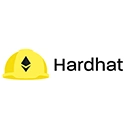Yes, you can deploy smart contracts using Hardhat on Ethereum testnets like Rinkeby or Kovan. This process allows you to test your smart contracts in a live environment without using real Ether. In this guide, we will walk you through the steps required to deploy your contracts on these testnets.
Prerequisites
- Basic knowledge of JavaScript and Solidity.
- A Hardhat project set up with smart contracts.
- Node.js installed on your machine.
- An Ethereum wallet (like MetaMask) with test Ether for deployment.
- An Infura or Alchemy account (or any Ethereum node provider) to connect to the testnets.
Setting Up Your Hardhat Project
If you haven't set up a Hardhat project yet, follow these steps:
mkdir my-hardhat-project
cd my-hardhat-project
npm init --yes
npm install --save-dev hardhat
npx hardhatCreate a simple smart contract in the contracts directory, such as Greeter.sol:
pragma solidity ^0.8.0;
contract Greeter {
string public greeting;
constructor(string memory _greeting) {
greeting = _greeting;
}
function greet() public view returns (string memory) {
return greeting;
}
function setGreeting(string memory _greeting) public {
greeting = _greeting;
}
}Installing Required Dependencies
To deploy to testnets, you will need the @nomiclabs/hardhat-ethers and @nomiclabs/hardhat-waffle plugins:
npm install --save-dev @nomiclabs/hardhat-ethers @nomiclabs/hardhat-waffle ethersConfiguring Hardhat for Testnets
You need to configure Hardhat to connect to the testnets. Open the hardhat.config.js file and add the following configuration:
require("@nomiclabs/hardhat-waffle");
require("@nomiclabs/hardhat-ethers");
const { task } = require("hardhat/config");
// Replace with your Infura or Alchemy project ID and wallet private key
const INFURA_PROJECT_ID = "your_infura_project_id"; // Replace with your Infura project ID
const PRIVATE_KEY = "your_wallet_private_key"; // Replace with your wallet private key
module.exports = {
solidity: "0.8.0",
networks: {
rinkeby: {
url: `https://rinkeby.infura.io/v3/${INFURA_PROJECT_ID}`,
accounts: [`0x${PRIVATE_KEY}`]
},
kovan: {
url: `https://kovan.infura.io/v3/${INFURA_PROJECT_ID}`,
accounts: [`0x${PRIVATE_KEY}`]
}
}
};Make sure to replace your_infura_project_id and your_wallet_private_key with your actual Infura project ID and your wallet's private key. You can obtain test Ether from a faucet for the respective testnets.
Creating a Deployment Script
Create a new deployment script in the scripts directory named deploy.js:
async function main() {
const Greeter = await ethers.getContractFactory("Greeter");
const greeter = await Greeter.deploy("Hello, Rinkeby!");
await greeter.deployed();
console.log("Greeter deployed to:", greeter.address);
}
main()
.then(() => process.exit(0))
.catch((error) => {
console.error(error);
process.exit(1);
});Deploying to the Testnet
Now you are ready to deploy your contract to the Rinkeby testnet. Run the following command in your terminal:
npx hardhat run scripts/deploy.js --network rinkebyFor deploying to Kovan, you can run:
npx hardhat run scripts/deploy.js --network kovanUpon successful deployment, you will see the contract address printed in the console.
Verifying the Deployment
After deploying your contract, you may want to verify it on Etherscan for the respective testnet. To do this, you can use the hardhat-etherscan plugin. First, install the plugin:
npm install --save-dev @nomiclabs/hardhat-etherscanThen, add the Etherscan API key to your hardhat.config.js:
require("@nomiclabs/hardhat-etherscan");
module.exports = {
solidity: "0.8.0",
networks: {
rinkeby: {
url: `https://rinkeby.infura.io/v3/${INFURA_PROJECT_ID}`,
accounts: [`0x${PRIVATE_KEY}`]
},
kovan: {
url: `https://kovan.infura.io/v3/${INFURA_PROJECT_ID}`,
accounts: [`0x${PRIVATE_KEY}`]
}
},
etherscan: {
apiKey: "your_etherscan_api_key" // Replace with your Etherscan API key
}
};To verify your contract, run the following command:
npx hardhat verify --network rinkeby <your_contract_address> "Hello, Rinkeby!"Replace <your_contract_address> with the actual address of your deployed contract. For Kovan, simply change the network parameter:
npx hardhat verify --network kovan <your_contract_address> "Hello, Kovan!"Conclusion
Deploying smart contracts on Ethereum testnets like Rinkeby or Kovan using Hardhat is a straightforward process. By following the steps outlined in this guide, you can test your contracts in a live environment without the risk of losing real Ether. This allows for thorough testing and debugging before deploying to the Ethereum mainnet.

